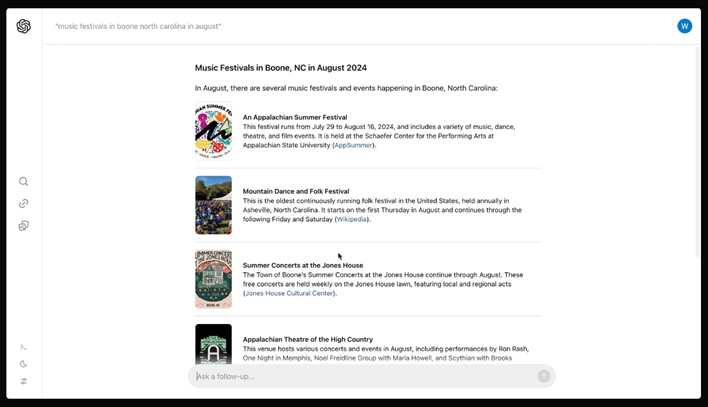OpenAI Unveils SearchGPT, An AI Search Engine To Challenge Google
Google Search has been the go to choice for finding things on the internet for many for some time now. Part of the reason for that, however, has been a carefully crafted method of doing business by Google, such as paying Apple $20 billion in 2022 alone to make its search engine the default in Apple’s own Safari web browser. But Google isn’t the only one making deals with Apple these days, as OpenAI recently made its own deal with the Cupertino-based company to deploy ChatGPT on iPhones. Now, OpenAI is setting its sights on Google Search with its own AI-infused search engine.
The AI titan bills its SearchGPT as “a new way to search,” and will deliver new search features designed to combine the strength of its AI models with information across the world wide web. The company added that its search engine has launched to a small group of users and publishers in order to garner feedback, adding this is only temporary, with plans to integrate the best of the features directly into ChatGPT in the future.
OpenAI states SearchGPT will quickly and directly respond to questions with up-to-date information from the web while giving users clear links to relevant sources. Users will then be able to ask follow-up questions, such as a person would in a conversation with a person, with the shared context building with each question. According to OpenAI, responses will have clear, in-line, named attribution and links so users know where information is coming from.
One issue publishers have taken with Google as of late, is how the company is using features like its AI search summary feature to scrape information directly from sites with little credit given to the publisher, and providing links that are not prominent enough to drive users back to the publisher’s website. OpenAI, on the other hand, says it is partnering with publishers to gain their feedback, as well as launching a way for publishers to manage how they appear in ChatGPT. The AI company also says it will keep its SearchGPT separate from training its generative AI foundation models, allowing companies to opt out of generative AI training while still surfacing in search results.
Time will tell if OpenAI’s SearchGPT can actually challenge Google Search, and if it will truly be more publisher friendly. Until then, anyone who would like to sign up for the waitlist for OpenAI’s SearchGPT can do so on the company’s website.



